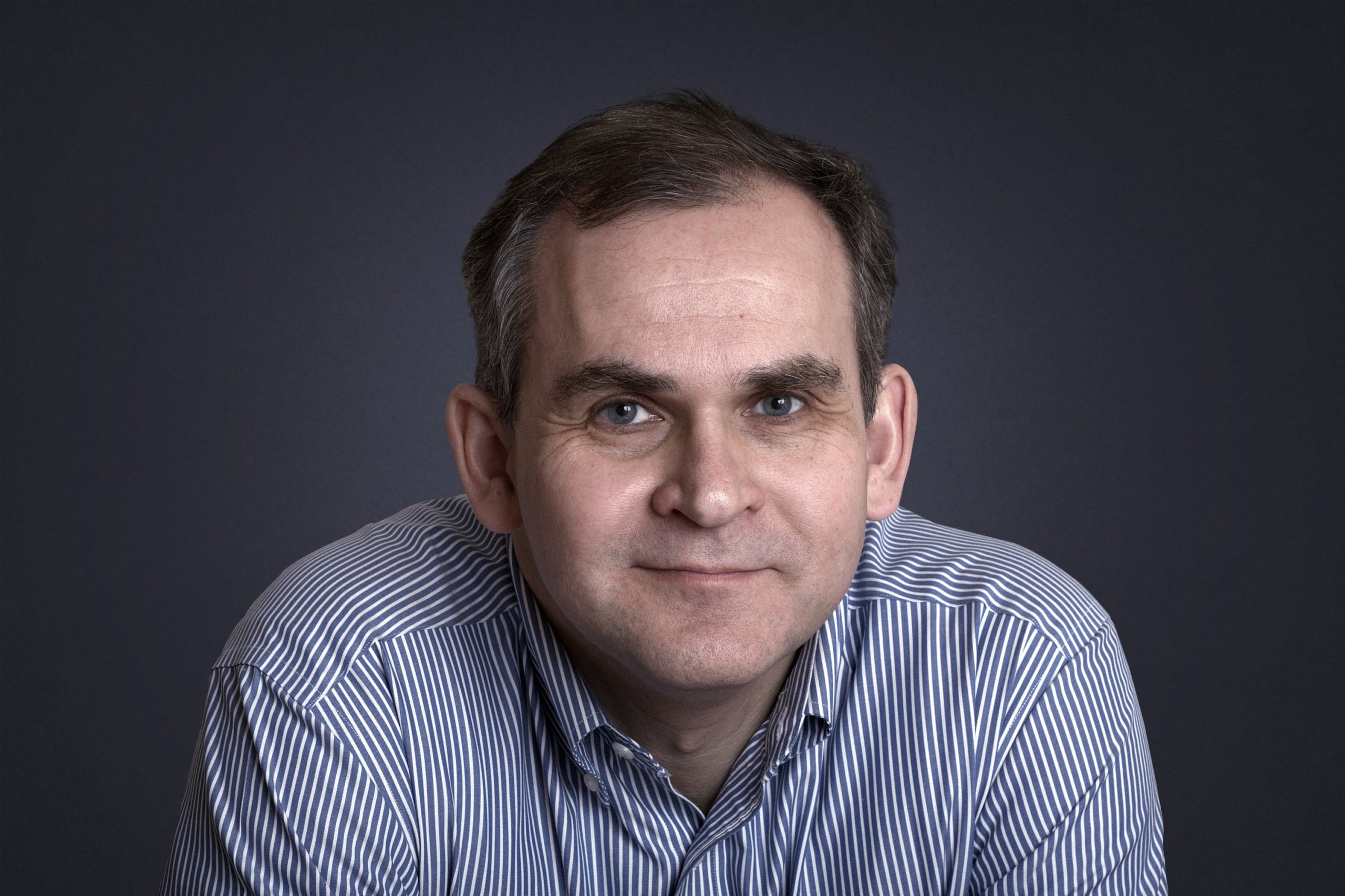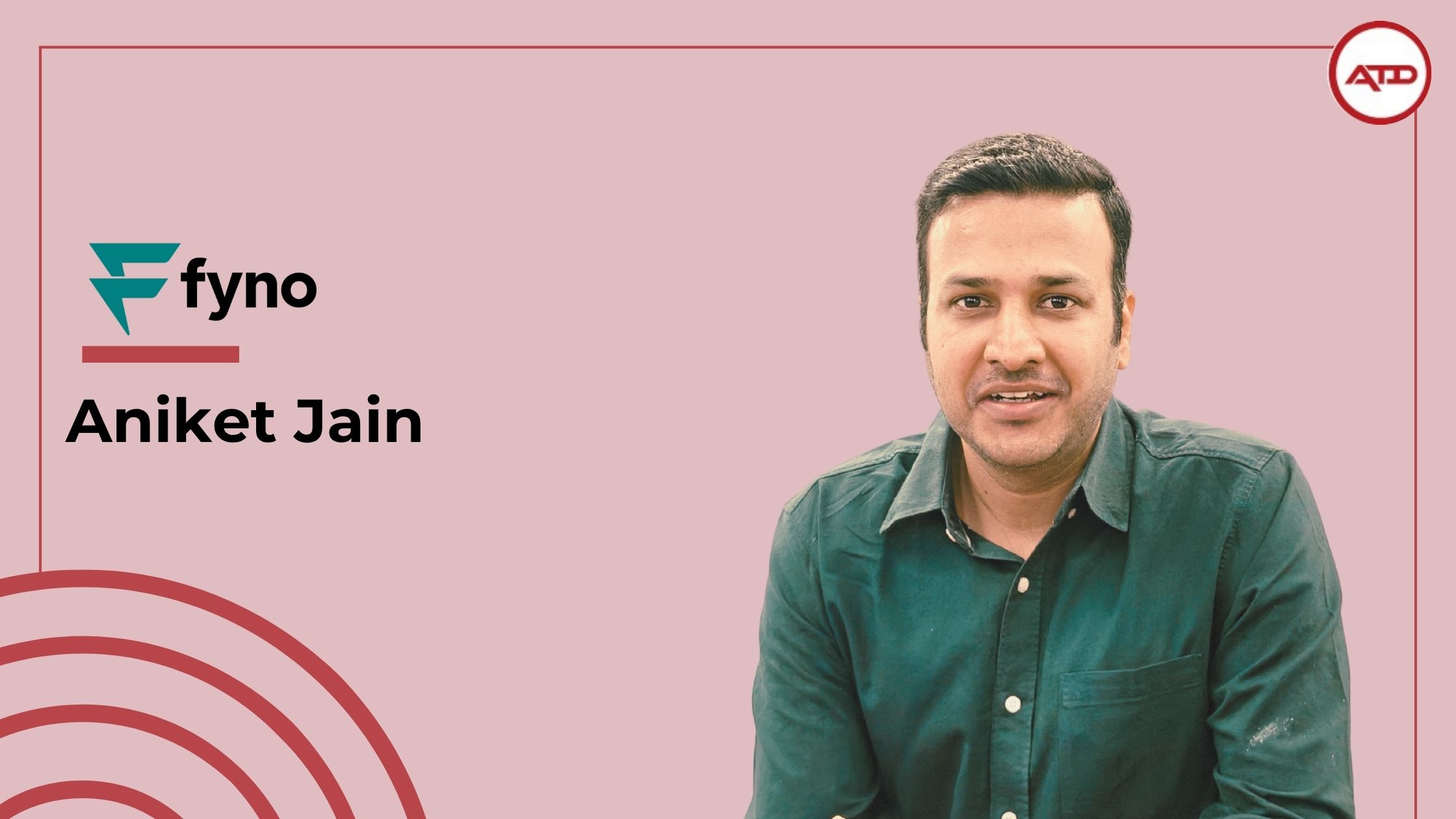AsiaTechDaily – Asia's Leading Tech and Startup Media Platform

How Dmitry Stavisky Co-founder And COO At MyBuddy.ai Helped The Company Raise US$2M To Build A Voice-Based English Tutor?
Dmitry Stavisky is an experienced entrepreneur and technologist who enjoys leading world-class teams that conceive, develop, launch, and grow great product businesses.
In 2016 he co-founded Edwin.ai to help over 800 million students learn English as a foreign language, intending to open new career opportunities. Following Edwin’s merger with MyBuddy, Dmitry is serving as the COO of the resulting company.
He first encountered the challenge of learning a foreign language when he came to the US as a fresh postdoc to do academic research. He observed his children learn English as a second language. And later in his career, when he was leading the international expansion of Evernote, he was surprised by the low level of English fluency among successful professionals in most countries.
That led him to accept the invitation to lead Lingualeo, the largest online English-learning service in Eastern Europe. During his 2-year tenure, Dmitry supervised several major product releases, a service launch in Turkey, and the user base’s growth to over 13 million students. Lingualeo achieved profitability in 2015.
Before his work in EdTech, Dmitry worked with Evernote, which he initially joined in 2006 as VP of Product Management and later became VP of International. In this role, he led Evernote’s effort to become a global company, with two-thirds of its business outside the US. He developed the Evernote international playbook and built its international market development team, which launched Evernote in 26 countries outside North America. He also led the rollout of Evernote’s service in China.
Earlier, Dmitry was a technical leader with Massachusetts-based startup SightPath, a pioneer in the Content Networking market acquired by Cisco Systems in 2000. As a member of the SightPath founding team, he was responsible for its service provider CDN technologies and product line.
He is the author of seven patents.
Dmitry has graduated from Moscow University in 1986 and holds a Ph. D. in Geography from the Soviet Academy of Sciences. Before his career in high tech, he studied glacial climates and developed numerical climate models.
In an exclusive interview with AsiaTechDaily, Dmitry says:
I’m motivated by being mindful of the progress I’m making in business and personal projects. Also, “small joys of life,” like meeting a friend, taking a walk, reading a book, help me stay in a good mood even in times of stress.
“Don’t do a startup unless you feel you really have to”.
You need a good product to market. The “fake it till you make it” approach has its limits. You also need to find your users, tell them about your product and convince them to try and to pay. Sometimes it’s tempting to rely on one-two marketing channels that look most effective, such as Facebook ads. This can be a great way to start, but you need to diversify your channels and build a brand longer-term. Otherwise, you are risking to hit the channel capacity or suffer from the CAC trending up. Also, relying on someone else’s platform add extra risks.
Read on to know more about Dmitry Stavisky and his journey.
Please tell me about your personal background, and What motivated you to get started with your company?
Dmitry Stavisky: I grew up in Moscow, was trained as a geophysicist. I studied Earth climate, and my Ph.D. was on numerical climate modeling. I came to the US in 1991 as a visiting scientist, left academia in 1994, and worked in high-tech since, mostly in startups. I was fortunate to be a member of the founding team of several successful startups, among them SightPath (acquired by Cisco for $800M) and Evernote (an “external brain” service with over 200 million users, one of the first “unicorns.”)
I learned English as an adult, by shock and immersion, so I know how hard it is to reach proficiency. Learning to converse in English was particularly hard.
Later, when I was responsible for international operations at Evernote, I did a lot of travel, and I was surprised by how low English fluency was in most countries. I was even more surprised when I realized that English is part of public school and university curricula in many countries. Students spend a lot of time studying English. In many cases, their families also spend a lot of money paying for private lessons. But the outcomes are often quite poor.
That’s the problem we are solving at MyBuddy.ai.
What is your current main product, and can you share any previous product pivot story to the current product?
Dmitry Stavisky: We are building Buddy a voice-based AI English tutor for kids. Most of our team members are former students of English as a foreign language (EFL) ourselves, so we know that the best way to teach a language is to provide each student with personalized 1:1 tutoring. That’s the gold standard of language education. But it’s prohibitively expensive. Besides, there are just not enough qualified English teachers. Fortunately, recent advances in pedagogy and AI enable us to delegate a significant part of the EFL curriculum to virtual tutors.
That’s what Buddy does. This mobile app helps children practice their spoken English by conversing with a cute virtual AI-powered cartoon character — Buddy, the robot. Our goal is to make speaking practice affordable for 500 million children worldwide by automating the mundane 80% of tutoring work at 2% of the cost. This will enable teachers and parents to give kids unlimited speaking practice, essential for mastering English. As for teachers, Buddy will help them focus on the most nuanced high-value aspects of teaching.
Today’s Buddy is a product of two pivots and a merger of two teams. One team, MyBuddy.ai, started with the idea of building an early cognitive development app for American preschoolers. They quickly pivoted towards solving a more significant problem – a lack of affordable EFL learning tools. The second team, Edwin, built a virtual EFL tutor specializing in preparing students for standardized tests like TOEIC and TOEFL. This turned out to be a very conservative segment, so we decided to apply our technology to teaching younger kids – and merged with MyBuddy.ai in January 2020. The resulting company kept the focus on younger kids and the “MyBuddy.ai” name.
How much money have you raised in total so far? When was the recent funding round?
Dmitry Stavisky: MyBuddy.ai raised about USD 1M from business angels and USD 1M Seed round in February 2020.
How have you attracted users, and with what strategy have you grown your company from the start to now?
Dmitry Stavisky: It’s 50% performance marketing and 50% organic growth through word of mouth. We use Google and Facebook ads and experiment with other channels.
Which has been the best marketing software tool for the growth of your startup, and why?
Dmitry Stavisky: App stores. These are great platforms and channels for startups like MyBuddy.ai. We also assembled a robust marketing analytics platform. It’s essential when you do digital advertisement.
What do most startups get wrong about marketing in general?
Dmitry Stavisky:
- The balance between marketing and product development
- The balance between advertisement and brand-building
Finding this balance is really hard – it’s different for every product and company.
You need a good product to market. The “fake it till you make it” approach has its limits. You also need to find your users, tell them about your product and convince them to try and to pay. Sometimes it’s tempting to rely on one-two marketing channels that look most effective, such as Facebook ads. This can be a great way to start, but you need to diversify your channels and build a brand longer-term. Otherwise, you are risking to hit the channel capacity or suffer from the CAC trending up. Also, relying on someone else’s platform add extra risks.
What are the biggest challenges and obstacles that you have faced in the process of fund-raising? If you had to start over, what would you do differently?
Dmitry Stavisky: Until recently, EdTech was not sexy in the US, especially when you were building a product for overseas markets. The proof threshold was much higher than in other areas. This is changing now because of the successes of Asian EdTech companies, partly because of the switch to distant learning during the COVID-19 pandemic.
What are your milestones for the next round? And what are your goals for the future?
Dmitry Stavisky: Currently, we focus on extending Buddy’s curriculum and improving his teaching methodology. We want to achieve superior learning outcomes before scaling the service. That’s when we’ll need to raise more capital for further growth.
How do you plan to expand globally?
Dmitry Stavisky: Our users –– children, teachers, and parents –– tell us that Buddy is already quite useful. He acts as an ice-breaker, helping kids start speaking English. So we are adding support for more first languages. Today we are in Eastern Europe (Russia, Poland, Ukraine) and Latin America. Turkey is; next, Korea is on the shortlist.
What are the most common mistakes companies make with global expansion?
Dmitry Stavisky: The main mistake is to start in a smallish local market and wait too long before expanding internationally. Another common mistake is to start with a big bang: a big office, big team, big announcement. This may work for larger corporations, but, I believe, most startups should start small. They must localize the product, test the market’s reaction, get one or two strong entrepreneurial people on the ground, collect user feedback, and go from there – grow the team with the business.
How do you handle this COVID-19 outbreak situation for your company’s survival in the future?
Dmitry Stavisky: We are fortunate to be able to work from home. Also, we started as a distributed team, so it was easier for us to adjust. The risk for us, as for many other companies, is the decline of our users’ purchasing power. So far, this was more than compensated by the increased demand for self-learning tools.
What are the most common mistakes founders make when they start a company?
Dmitry Stavisky:
- They often lack understanding of the user problem; don’t talk to enough prospective customers.
- Fail to pull together a strong team.
- Wait too long before launching and getting user feedback.
What’s the best advice you’ve ever received? and What advice do you have for someone who is interested in doing similar things like yours or in a similar direction?
Dmitry Stavisky: “Don’t do a startup unless you feel you really have to”.
How do you keep yourself motivated every day?
Dmitry Stavisky: I’m motivated by being mindful of the progress I’m making in business and personal projects. Also, “small joys of life,” like meeting a friend, taking a walk, reading a book, help me stay in a good mood even in times of stress.
You can follow Dmitry Stavisky here.
Are you looking to secure investment for your startup or a keen startup enthusiast, keep an eye on our interview section.
Follow Asia Tech Daily to know about the innovative startups and how they are revolutionizing the ecosystem.



